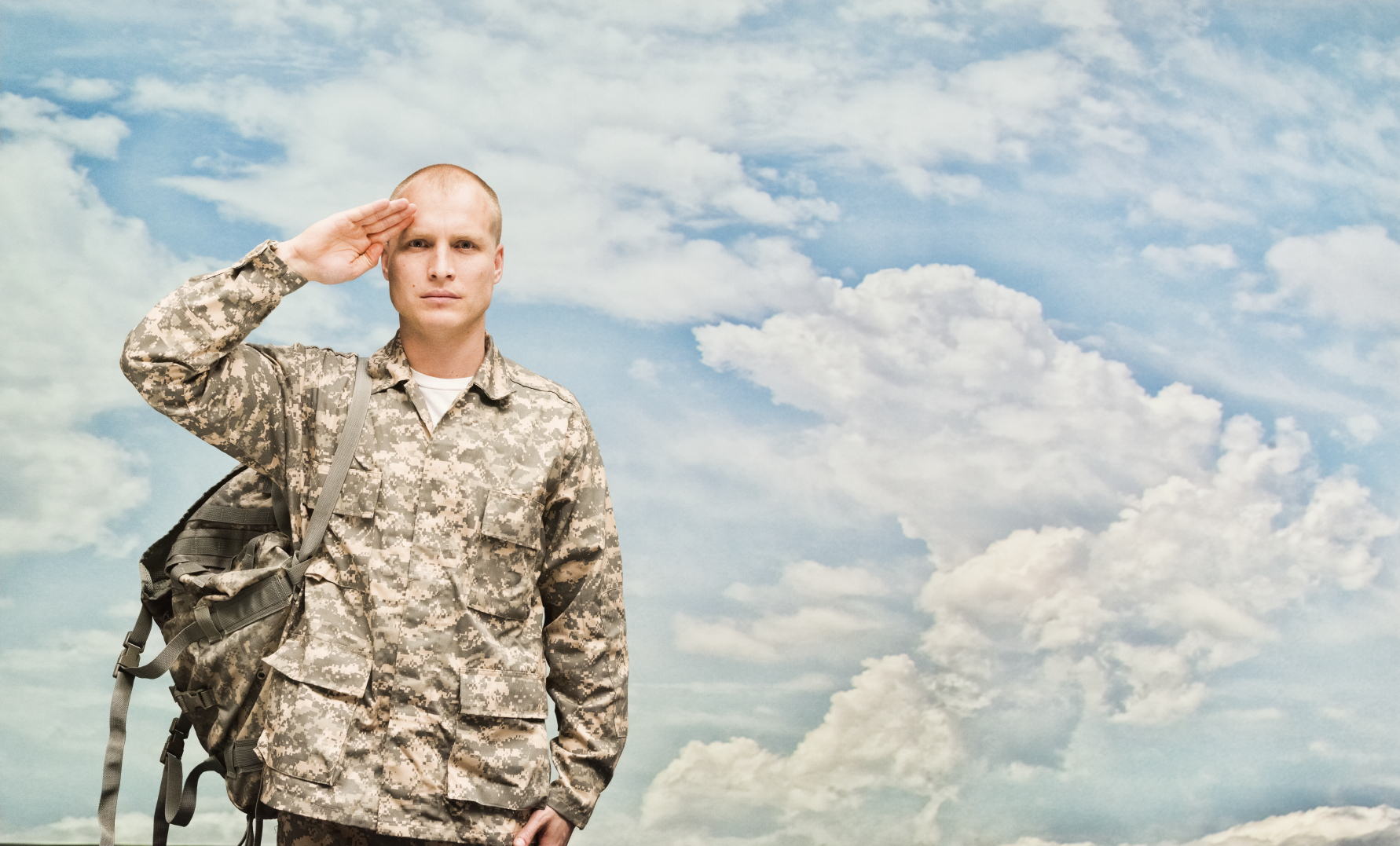It’s been said that to truly understand a man’s pain, one must walk a mile in his shoes. In an innovative collaboration, students at the Medical College of Wisconsin recently did just that when they strapped on the physical loads that America’s soldiers carry while deployed.
“Oh my God. Walk up a hill with this? My back actually hurts,” said third-year student Veronica Renov during a recent session, sweating and struggling to stand upright without falling.
Renov had just packed on an extra 100 pounds when a member of a medical recruiting battalion helped her into an Army vest weighted down with full canteens, then strapped on a camouflage backpack filled with a sleeping bag, wet and cold weather gear, ready-to-eat meals and tools. And it got worse. Not counted in that extra 100 pounds was the “battle rattle,” combat gear that included a helmet, elbow and knee pads, body armor and fake M-4 rifle made of dense, heavy rubber.
The goal of the program, developed with the help of active duty military members, veterans and health care professionals who treat them, is to help make medical students intimately aware of the physical demands placed on members of the military, and the resulting ailments that they may later treat in veterans who show up on exam tables in their clinics and hospitals. Often, a physician may not initially be aware that a patient is a veteran, so having experienced a military member’s burden may help them to quickly identify and more effectively treat medical problems.
The session also included a speakers’ forum focused on specific health issues that veterans commonly face. Topping the list are musculoskeletal pain from wearing body armor for months while Iraq and Afghanistan after the September 11, 2001 terrorist attacks. Even the youngest soldiers are presenting with joints that look like those of much older patients. Hearing loss from explosions and heavy machinery; sleep apnea and teeth grinding associated with war-zone stress; respiratory issues from breathing in dust and sand; kidney stones caused by hydration; and foot problems including plantar fasciitis, a result of carrying heavy military gear for miles through rough terrain also are common. And in older veterans, physicians are tasked with treating service-connected disabilities and noncombat exposure such as radiation during World War II and Korea, Agent Orange in Vietnam, depleted uranium in burn pits during Operation Desert Storm, contaminated water at Camp Lejeune and toxic-embedded fragments from IEDs in Iraq and Afghanistan.
One little known fact is that most veterans, particularly older ones, do not use Veteran’s Administration healthcare. The department is struggling to keep pace with patient demands and dealing with government bureaucracy and inefficient or outdated policies and procedures. Wait times for seeing a VA doctor can be months, even in cases of serious medical ailments. So, veterans increasingly are turning to private practice healthcare.
“The reality is most of these students will not see patients at the VA, but they will see them and their families in private practice,” said Leslie Ruffalo, assistant professor at the Medical College of Wisconsin, who also cautioned students to avoid a one-size-fits-all approach to treating veterans. “No one veteran is like another. Once you’ve met one veteran, you’ve met one veteran.”
Perhaps the best thing about the program, however, is that it was borne of a suggestion by a student as a way to challenge stereotypes about veterans that students may hold, particularly those who don’t have close family members or friends who have served in the military. It’s just that type of out-of-the-box approach to learning the practice of medicine that we here at WOLFPACC espouse. Our revolutionary, physiology-based lectures afford students a solid understanding of the five main organ systems and how they relate to each other, helping them to better apply what they’ll learn in medical school to the real-world practice of medicine. Find out how we can boost your chances of success both in your medical studies and your eventual healthcare career by calling 904-209-3140 to speak with a WOLFPACC enrollment specialist.





